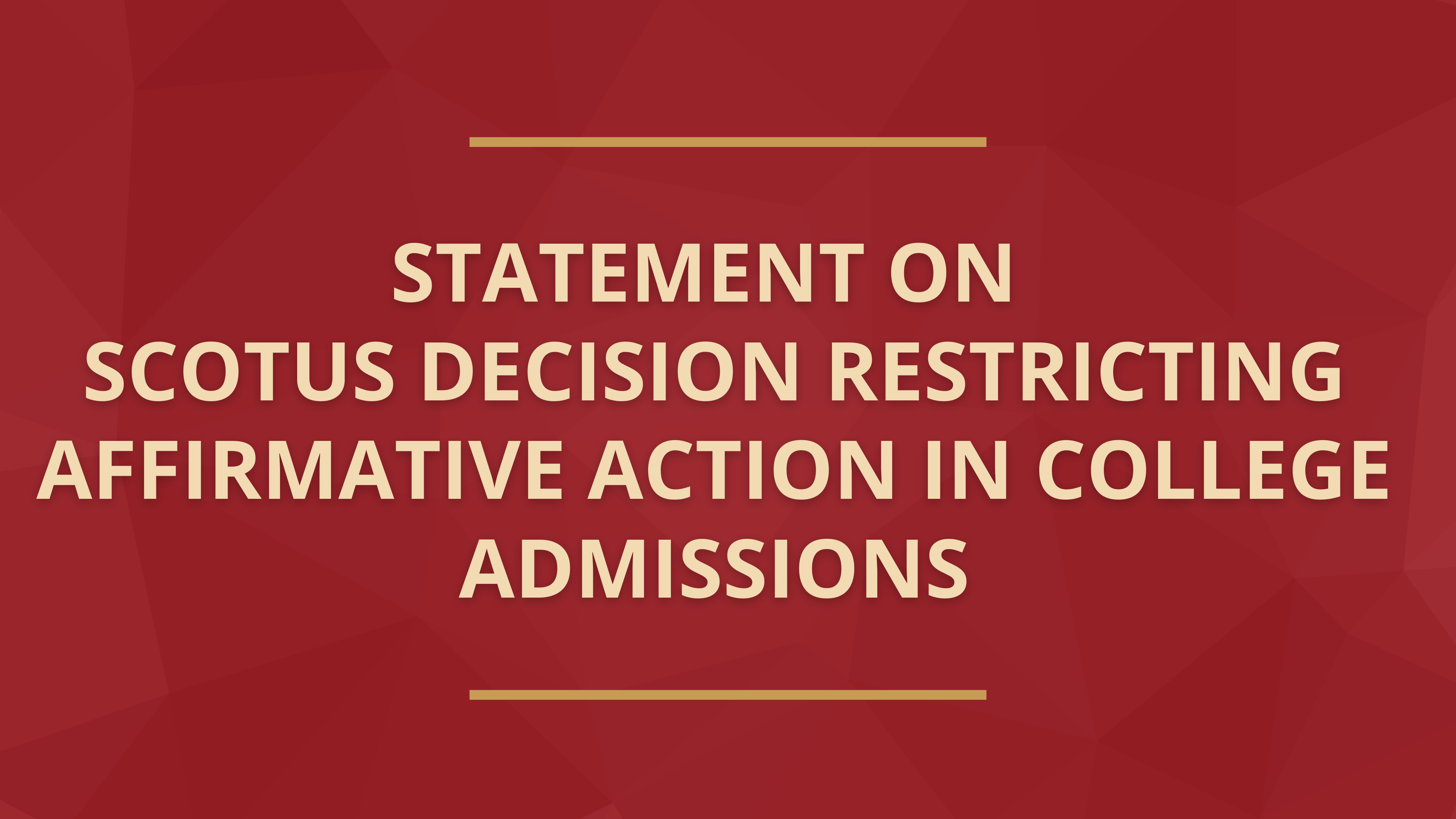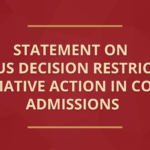Statement on SCOTUS Decision Restricting Affirmative Action In College Admissions
The Supreme Court’s decision today in Students For Fair Admissions, Inc. V. President and Fellows of Harvard College gutting affirmative action programs on college campuses will grievously undermine efforts to bring racial equity to the nation’s institutions of higher education, could threaten diversity, equity and inclusion efforts in workplaces and thwart progress towards eliminating the racial wealth gap.
Delta Sigma Theta Sorority was founded by Black women undergraduate students in 1913, a time when Black women were exceedingly rare on American college campuses.
Since our founding, we have fought to expand Black access to college education. While this Supreme Court decision is a blow to educational equity, it will not weaken our resolve to make college education attainable for more Black students.
In the words of Justice Sonia Sotomayor dissenting in the opinion, ”the six unelected members of today’s majority upend the status quo based on their policy preferences about what race in America should be like, but is not, and their preferences for a veneer of colorblindness in a society where race has always mattered and continues to matter in fact and in law.”
In her dissent, Justice Ketanji Brown Jackson observes that “[t]he majority seems to think that race blindness solves the problem of race-based disadvantage. But the irony is that requiring colleges to ignore the initial race-linked opportunity gap between applicants… will inevitably widen that gap, not narrow it. It will delay the day that every American has an equal opportunity to thrive, regardless of race.” Justice Jackson astutely notes that today’s decision “condemns our society to never escape the past that explains how and why race matters to the very concept of who “merits” admission.”
Affirmative action policies allowed for race conscious admissions. This simply means that colleges and universities were able to include race in the matrix of characteristics considered as the school selected admitted students from those who meet their admission requirements. Yet while today’s decision ends affirmative action and race conscious admissions, the long standing continuation of admission programs that give preferential treatment based on one’s status as an athlete, a legacy, a child of a donor or child of faculty remains; an applicant population who, in the case of Harvard, is nearly 67% white, constitutes only 5% of the applicant pool but represents nearly 30% of admissions.
Early champions of affirmative action policies believed race-conscious college admissions were necessary because while the civil rights movement gave Blacks access to the vote and public accommodations, they were still underrepresented at colleges and universities and the lucrative fields of work that required college degrees. These policies are still important because the wage gap between college degree holders and those with only a high school diploma persists. It has been estimated that workers with a bachelor’s degree, on average, earn $1 million more over the span of a career than high school graduates.
In recent years, opponents of affirmative action have argued that university admissions should be race-neutral, believing that the mere passage of time since African Americans were explicitly barred from attending universities is evidence of progress. However, when states have eliminated affirmative action programs in college admissions, Black enrollment has dropped precipitously. For example, Black enrollment at the University of Michigan dropped by almost half after Michigan voters banned affirmative action programs in 2006. Enrollment of students from underrepresented racial and ethnic groups in California’s public university system dropped from 20% to 15% after the passage of Proposition 209 in 1996.
In a 1965 commencement speech at Howard University, President Johnson outlined his belief that the effects of centuries of Black oppression must be factored into strategies to build racial equity. “You do not take a person who, for years, has been hobbled by chains and liberate him, bring him up to the starting line of a race and then say, ‘you are free to compete with all the others,’ and still justly believe that you have been completely fair,” Johnson said.
The end of affirmative action on college campuses could also spell trouble for the American economy. A 2018 study by management consulting firm McKinsey and Company showed that companies with diverse executive teams are 33% more likely to see better than average profits. Few Black college graduates -especially from elite schools – will likely mean fewer Black executives.
While this decision is a stinging blow to Black progress, the members of Delta Sigma Theta will remain engaged in the struggle to boost Black access to college education. On the programming side, we will continue to offer educational enrichment programs that prepare Black students for college success and financial scholarships to ease the burden of college affordability. We will also engage in social action to fight for the principles that animated affirmative action programs. We will encourage members of Congress to explore ways to address equal access to higher education. We will also monitor the actions of higher education boards and fight for programs to boost Black enrollment and retention at American colleges and universities.
###DST###







